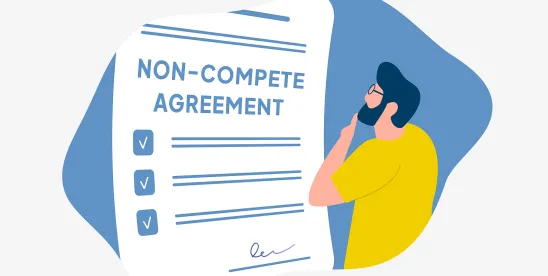This is the second installment of our three-part blog series that is intended to respond to employers’ three most frequently asked questions in response to the Federal Trade Commission’s (FTC) Final Noncompete Rule (the “Noncompete Rule”). Part 1 addressed whether employers can seek to enforce their noncompetes pending the anticipated effective date of the Noncompete Rule.
A second frequently asked question is: “Can we continue to enter into noncompetes with newly hired, or existing, employees?” The short answer is “yes”, but employers should be aware of some pitfalls.
If it is not enjoined or stayed, the earliest the Noncompete Rule will go into effect is September 4, 2024. As previously reported, we believe it is likely a court will enjoin the Noncompete Rule from going into effect. Of course, if the Noncompete Rule does go into effect, absent one of a few exceptions, most noncompetes between employers and employees will be prohibited. If, however, the Noncompete Rule is enjoined, employers must nevertheless be aware of the continuing changing landscape of state law as it relates to noncompetes and other restrictive covenants.
While attempts to ban noncompetes are occurring at the federal level, many states have passed, or sought to pass, bans on noncompetes while other states have enacted laws that place restrictions on noncompetes through minimum salary requirements or notice requirements. For example, in 2023, Minnesota enacted a state law that bans employer noncompetes. In June 2023, New York attempted to ban noncompete agreements and certain restrictive covenants, but Governor Kathy Hochul vetoed the bill. Similarly, Maine also recently attempted to ban noncompete agreements, but Governor Janet T. Mills vetoed that bill. Also in 2023, California, which has prohibited noncompetes since the 1800s, passed legislation that required employers, by February 14, 2024, to send individualized notices to current employees and some former employers who entered into a noncompete that the noncompete is void under California law. Additionally, other states have passed legislation that require employers to comply with notice requirements relating to noncompetes or maintain minimum salary requirements for noncompetes to be enforceable.
We anticipate that states will continue to seek to pass legislation that either prohibit the use of noncompetes altogether or continue to restrict their use. For example, states such as Maine and New York are likely to revisit legislation restricting or barring noncompetes if the Noncompete Rule is enjoined or stayed.
While employers may continue to utilize noncompetes, they should be aware of applicable state law, as well as remain aware of the status of the Noncompete Rule. Should the Noncompete Rule become operative or if noncompetes are banned in a particular state where an employer operates, there remain alternatives to noncompetes. The FTC Noncompete Rule neither prohibits confidentiality agreements with employees nor does it explicitly prohibit nonsolicit provisions (provided the nonsolicit “does not function to prevent a worker from seeking or accepting other work or starting a business after their employment ends”). Thus, with a few exceptions where nonsolicits are prohibited by state law, such as California and a few others, employers may require its employees to enter into confidentiality and/or non-solicit restrictive covenants.
Although the legislative and regulatory attacks against noncompetes are anticipated to continue, employers continue to have avenues to protect relationships with their customers, as well as to protect their confidential information. Due to these continued attempts to restrict the use of noncompetes, employers should take immediate steps to bolster their policies and procedures aimed at protecting their trade secrets and confidential information. More to come on this issue in Part 3.
Read Part 1
Gianna Dano contributed to this article




 />i
/>i
